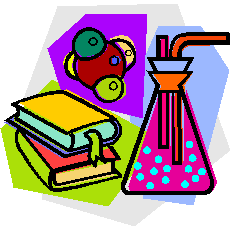

About AP Chemistry
Click here for the 2014 Summer assignment
Click here for the AP Chemistry Welcome/ Information Letter
For the 2014-2015 syllabus click here
Course Description
General Overview
The Advanced Placement Chemistry course is designed to be the equivalent of a first-year college Chemistry course. It is meant to be taken after successful completion of Chemistry 1 Honors and includes such topics as the structure of matter, states of matter, and reactions. It is an exciting but challenging course involving a lot of problem solving and high level lab work. Students therefore need to have been successful in higher level math courses (Algebra II or higher) and be prepared to spend 1 to 2 hours per night reading, practicing problem solving, and reviewing material from class. Students are also expected to perform associated labs and produce quality lab reports.
Detailed Course Information
A detailed official course description, including sample test questions, topics, formulas used, and exam format is available at the official College Board Website.
What Can You Expect?
In Class:
- Lots of explanations
- Plenty of practice problems - in groups and individually.
- Many actual AP problems and test questions
- Answers to your questions.
- Study tips and help.
At Home:
- Lots of homework and practice problems.
- Spending significant, quality study time (the College Board recommends at least 5 hours per week for AP Chemistry).
- Readings, projects, assignments, practice AP problems, challenge problems, and lab reports.
What Do I Expect?
- Hard work and honesty.
- Excellent attendance.
- Maturity (this is a college-level class).
- Development of high level study skills, organization, and time management.
- Respect for everyone in class - be prepared to work with other students and to share ideas and help each other solve challenges.
- Open communication - let me know early if you are having any problems.
Getting Help
AP Chemistry is an extremely challenging course. You will need to work hard to be successful, but the rewards and satisfaction when you pass the exam will be tremendous (not to mention how it will look on your college resume). You can expect to be frustrated sometimes when trying to figure out complex problems and concepts. If you give up at the first sign of frustration then you will never master the critical thinking needed for this, and other high level courses. There are many sources of help available to you:
For New Topics and Concepts:
- Print off the notes and read ahead in the textbook before we start a topic so that you can ask relevant questions.
- Ask appropriate questions in class.
- Make your own notes from class discussions and from the text.
- Read over your class notes and the worked examples.
- Ask a classmate if they can help explain.
- Come for tutoring after school (check with me for times and days).
- Re-read the appropriate part of the textbook and follow the sample problems at home.
- Check out some of the online tutoring sites and practice problems (see useful links page).
- Consider buying or borrowing a review guide (Ex: The Princeton Review Guide).
- Form a study group with some other class members - online or in person.
When Homework Problems Get Frustrating:
- Do NOT leave practice problems until the last minute - some of them are more complex than they look.
- Keep trying - do not give up as soon as you see an unknown word or term. Find terms you do know and work from there.
- Refer back to your textbook and the problems we've worked in class - see if one looks similar.
- Talk through the problem aloud - to your brother, parents, poster on the wall etc. It's often helpful to reason aloud even if no-one's responding.
- Try to solve the problem using any method you can think of - there are many ways of solving the same problem and yours may just work.
- Walk away from the problem - go on to another problem, get a snack, or do other homework and then come back to the problem later (not too late to finish it in time though).
- If it's still before the deadline, ask for a hint in class (I will not, however, give hints on challenge problems, reaction predictions, or other problems specifically assigned to enhance your critical thinking skills).
- Ask a friend for a hint (but NOT for all the steps and certainly NOT for the answer).
- If all else fails, do as much as you can then move on. With a course this challenging, everyone gets stumped from time to time. It is better to hand in a partial assignment than none at all.
- Once the assignment has been graded make sure you understand how to solve the problem and practice solving it by yourself so you'll be prepared next time.